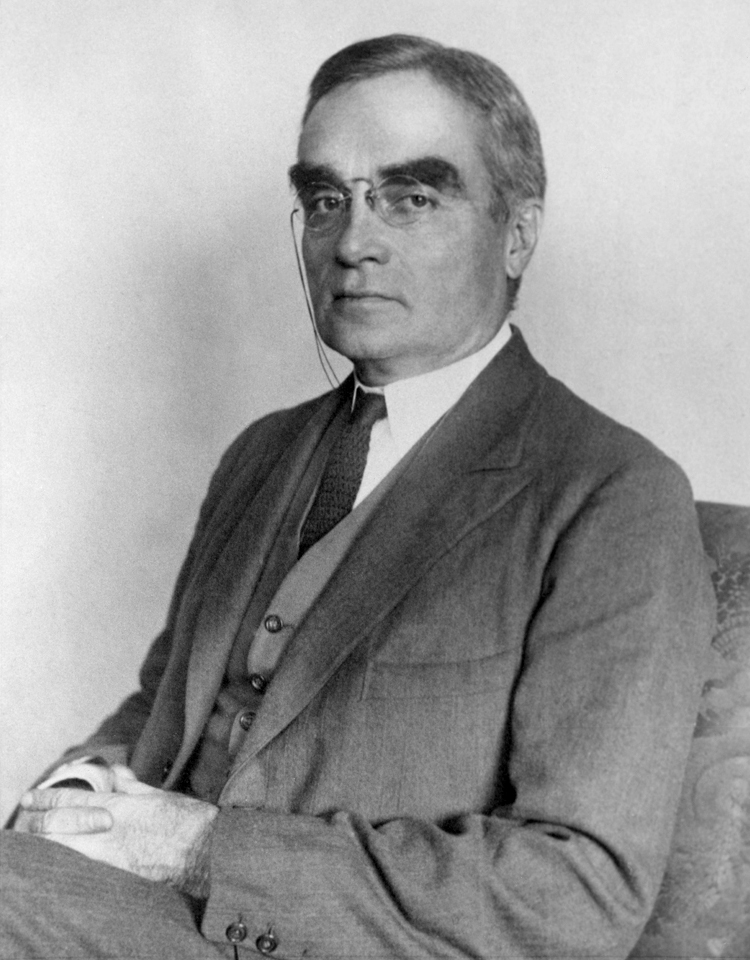"A Fanfare for Prometheus" (29 January 1955); also in The Spirit of Liberty: Papers and Addresses (1952), p. 131.
Extra-judicial writings
Хэнд, Лёрнед: Цитаты на английском языке
"A Pledge of Allegiance" - speech for "I Am an American Day" in Central Park, New York, New York. (20 May 1945).
Extra-judicial writings
"Sources of Tolerance" (1930); also in The Spirit of Liberty: Papers and Addresses (1952), p. 79.
Extra-judicial writings
"Democracy: Its Presumptions and Realities" (1932); also in The Spirit of Liberty: Papers and Addresses (1952), p. 92.
Extra-judicial writings
Extra-judicial writings, Speech to the Board of Regents (1952)
"On Receiving an Honorary Degree" (1939).
Extra-judicial writings
U.S. v. Kirschenblatt, 16 F.2d 202, 203 (2d Cir. 1926).
Judicial opinions
"The Contribution of an Independent Judiciary to Civilization" (1942).
Extra-judicial writings
Morals in Public Life (1951); Hand is here paraphrasing a famous expression of Oliver Cromwell from his letter of 3 August 1650 to the general assembly of the Church of Scotland.
Extra-judicial writings
As quoted in Learned Hand : The Man and the Judge (1994) by Gerald Gunther.
Extra-judicial writings
"A Fanfare for Prometheus" (29 January 1955).
Extra-judicial writings
Giuseppe v. Walling (1944).
Judicial opinions
Parke, Davis & Co. v. H. K. Mulford Co. (1911).
Judicial opinions
Letter to Louis D. Brandeis, dated (22 January 1919).
Extra-judicial writings
"In Memory of Charles Neave" (1938).
Extra-judicial writings
On Benjamin N. Cardozo in "Mr. Justice Cardozo" (1939); also in The Spirit of Liberty: Papers and Addresses (1952), p. 131.
Extra-judicial writings
As quoted in The Modern Researcher, 3rd edition (1977) by Jacques Barzun and Henry Graff, p. 44.
Extra-judicial writings
Address to Yale Law Graduates (1931); also in The Spirit of Liberty: Papers and Addresses (1952), p. 87.
Extra-judicial writings
"Class-Day Oration" (1893).
Extra-judicial writings
The Bill of Rights (1958), p. 73.
Extra-judicial writings
“The public needs the equivalent of Chevrolets as well as Cadillacs.”
On the trends toward popular marketing of legal services, quoted in USA Today (2 February 1984).
Extra-judicial writings
"Class-Day Oration" (1893).
Extra-judicial writings
United States v. Di Re (1947).
Judicial opinions
“I beseech ye in the bowels of Christ, think that ye may be mistaken.”
I should like to have that written over the portals of every church, every school, and every courthouse, and, may I say, of every legislative body in the United States. I should like to have every court begin, "I beseech ye in the bowels of Christ, think that we may be mistaken."
Morals in Public Life (1951); Hand is here paraphrasing a famous expression of Oliver Cromwell from his letter of 3 August 1650 to the general assembly of the Church of Scotland. Expanded upon in Establishment of a Commission on Ethics in Government, testimony before the United States Senate Committee on Labor and Public Welfare. Special Subcommittee on the Establishment of a Commission on Ethics in Government (1951), p. 218: I will give you an instance of what I mean, something he said that has always hung in my mind. It was just before the battle of Dunbar, where he beat the Scots, and that, as always, needed a very tough fight. (A marine whose name is Douglas will agree to that.) He wrote the Kirk before the fight, trying to get them to come to some reasonable composition: "I beseech ye in the bowels of Christ, think that ye may be mistaken." I should like to have that written over the portal of every church, every school and every courthouse. May I say I should even add over the portal of every legislative room in the United States? I should like every court to begin: "I beseech ye in the bowels of Christ, think that ye may be mistaken."
Extra-judicial writings
"A Pledge of Allegiance" - speech for "I Am an American Day" Central Park, New York, New York. (20 May 1945) Hand credited H. G. Wells with inspiring some of the ideas expressed in this speech.
Extra-judicial writings
"The Contribution of an Independent Judiciary to Civilization" (1942).
Extra-judicial writings
